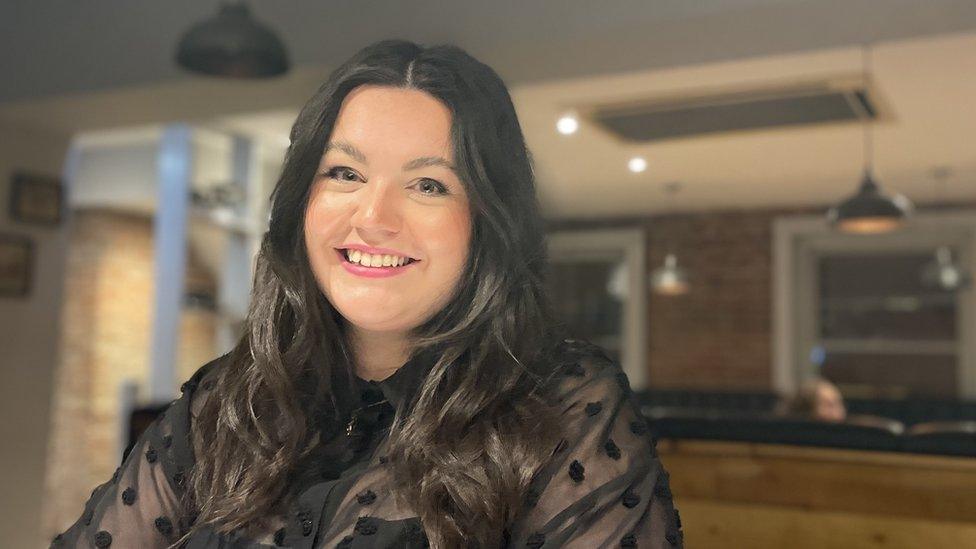Loneliness: Why bank holidays can be challenging for some
- Published
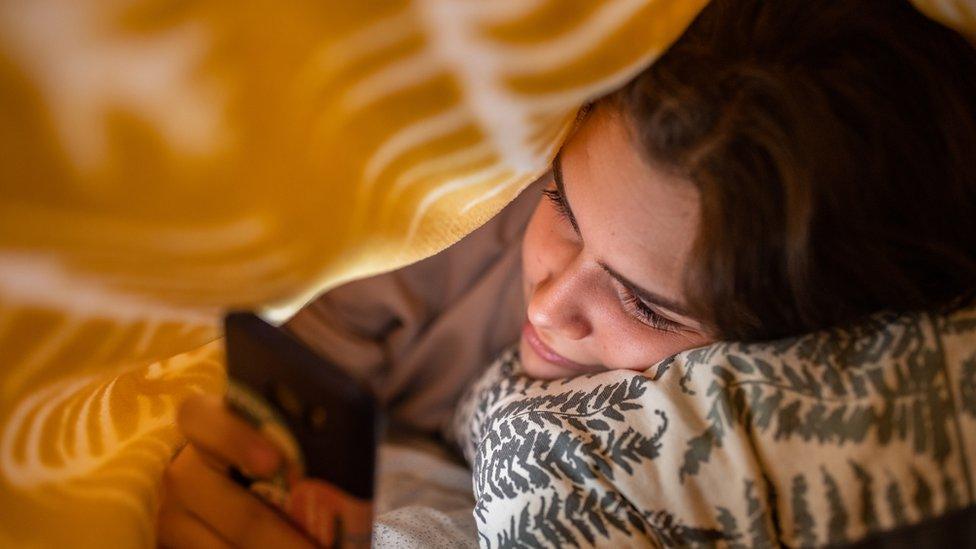
The BBC Loneliness Experiment found 40% of 16 to 24-year-olds reported feeling lonely often or very often
Have you been dreading feeling lonely over this bank holiday weekend? You're not alone.
The coronation of King Charles has meant we're now in our third bank holiday this month.
While for many an extra day off work is something to celebrate, for others it simply extends a weekend of isolation.
Naomi Lea, 24, knows this feeling only too well.
"I have felt quite lonely for a long time, I think I probably felt it before I even could have labelled what it was," she said.
"Going through school I felt like I didn't quite fit in... it wasn't that there weren't people around and I didn't have friends, but it's just that belonging wasn't quite there."
She said bank holidays can just exacerbate feelings of loneliness.
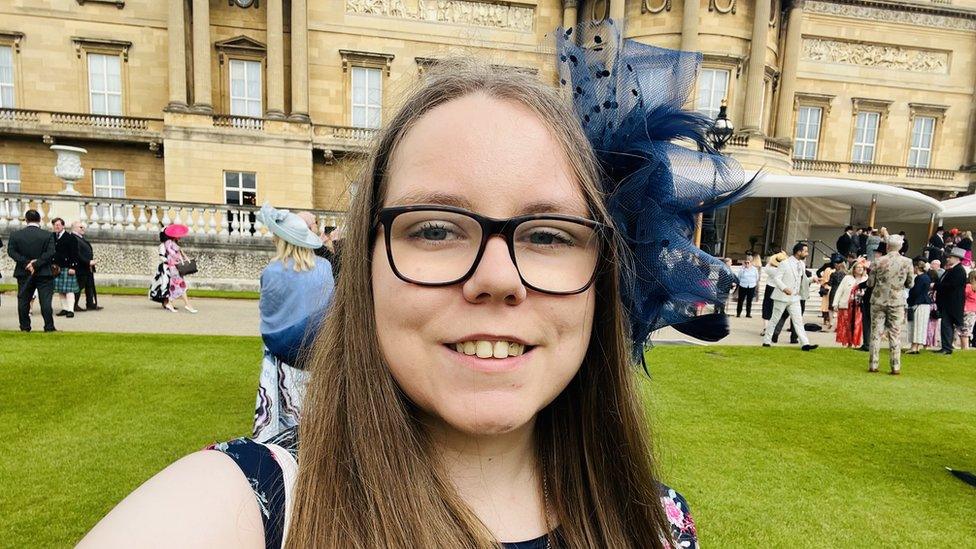
Naomi Lea says she has always experienced feelings of loneliness
"There's this pressure to always be doing stuff. You might be going into work, and everyone's like, 'what you doing this bank holiday weekend?'" she said.
"There's been times when I'm seeing stuff on social media, I'm seeing people going out and doing stuff, and I'm like, 'wait, I've got nobody who I can ask to go and do that this weekend' or I'm just stuck in the house."
While at Cardiff University Naomi decided to open up about how she was feeling and the more she shared her experience the more she realised many others were feeling the same.
She decided to do something about it and at the height of the pandemic was running three Zoom sessions for people aged 13 to 25 to meet others and take part in activities such as escape rooms, creative writing and games nights.
Naomi stayed on in Cardiff after getting her degree. But lots of her friends returned home, so she found herself feeling cut off again.
Then a year into living in a shared house someone new moved in and they "just clicked straight away".
They now share hobbies together and have introduced each other to their friends.
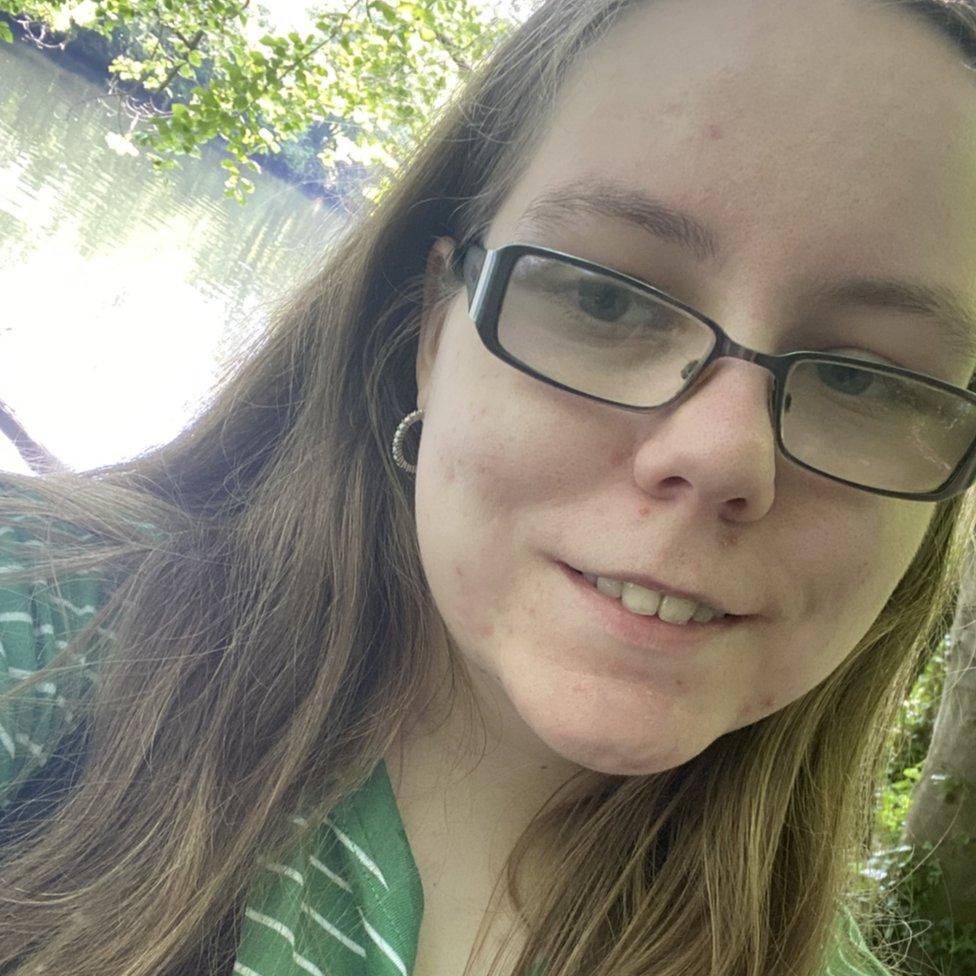
Naomi says things got better once she started sharing her experience of loneliness with others
Naomi is now director of YL Project Hope, which tackles loneliness and isolation in young people by empowering and providing space for them to meet online.
She has learnt a lot from her personal experience.
"When I use my social media now... I try and be as authentic as possible," she said.
"I don't just post the highlights of my life because it's really important that we can see that people's lives aren't perfect and we all go through difficult feelings at different points in our lives."
Naomi said sharing how she feels can be a big help, as well as finding activities that she really enjoys and paying less attention to social media.
"One thing that made a real difference to me was realising I can go out and do things alone if I want to," she said.
She finds going to the theatre to see a musical by herself "really freeing".
Naomi is not unusual - the BBC Loneliness Experiment found 40% of 16 to 24-year-olds reported feeling lonely often or very often.
Loneliness can have serious health implications. One study found, external loneliness can increase your risk of death by 26% and is worse for you than obesity.
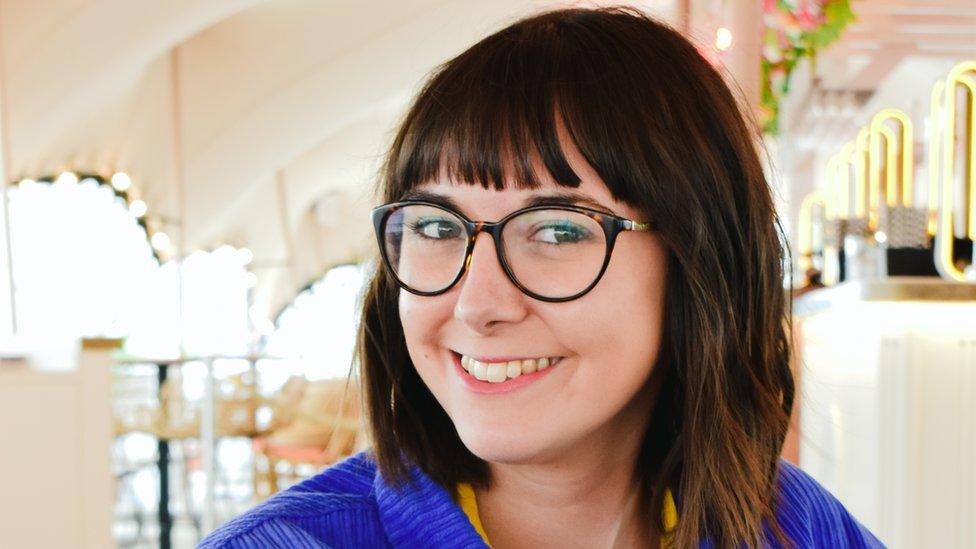
Pippa Moyle set up an online network for women after experiencing loneliness herself
Pippa Moyle also found herself feeling lonely after university.
After finishing her degree in Sheffield in 2016 she moved back to Brighton where she had previously lived while at music college.
"It wasn't really the same, my friends kind of moved on or were perhaps starting families and it just wasn't that same kind of community experience that I'd felt," she said.
"I was walking on the beach one day and I saw a girl looking out to the sea and I just remember this really powerful feeling of 'I wonder if she feels how I feel?' which was just a bit lost really.
"Even though I was in a job and I'd just met a nice boy I didn't have the friends that I could just chat with, or go to the beach with and all this sort of thing."
In that moment she decided to post on social media asking if anyone wanted to meet for a coffee; to her delight 17 girls turned up.
"It just completely snowballed," she said.
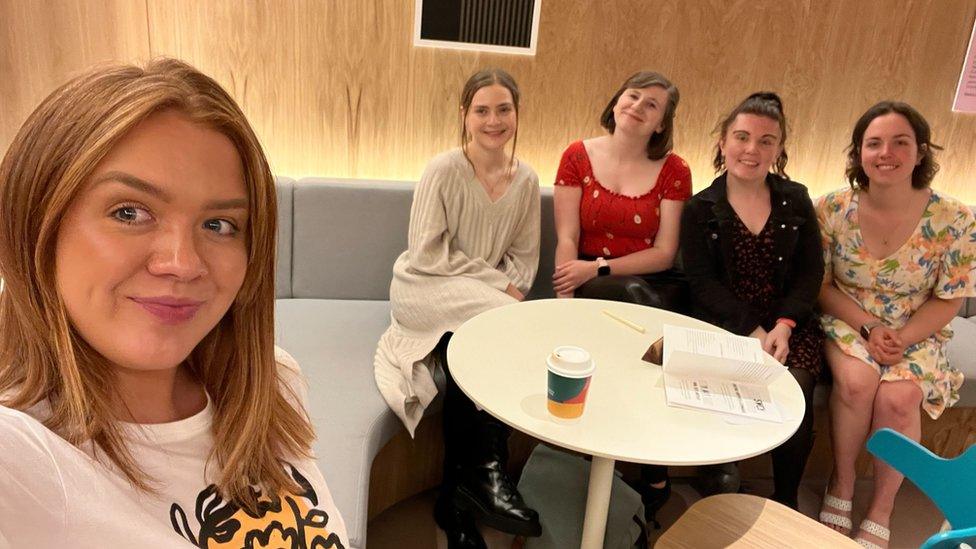
Cardiff City Girl has been running for about two years
The meetings grew and grew and within six months another girl asked if she could replicate it in Edinburgh and another in Berlin.
City Girl Network was born and now has 110,000 members across the UK.
Members, usually aged between 23 and 41, join for free and stay connected through Facebook, Instagram and newsletters.
"It's at that stage where our parents and grandparents had very traditionally kind of settled... but this whole new generation is trying to navigate the world as a woman where perhaps the family dynamics are different," said Pippa.
She said some users reported meeting their best friends through the network and others have set up businesses together.
Cardiff City Girl started about two years ago. Chloe Wilcox-Jones, 24, is one of 6,00 members in the Welsh capital and decided to join after moving back home to Cardiff after university.
She said it allowed herself and other members to "form real connections and share positivity at a time when the world can sometimes feel overwhelmingly dark and lonely".
"[It] really is the epitome of women supporting women," she said.
Mishail Farooq, 28, who joined the Cardiff network in 2021, has been to the theatre, gigs, the gym, hiked and gone on trips with other members.
She said: "I've made wonderful memories with the new people I've met."
The network plans to expand into Newport soon.
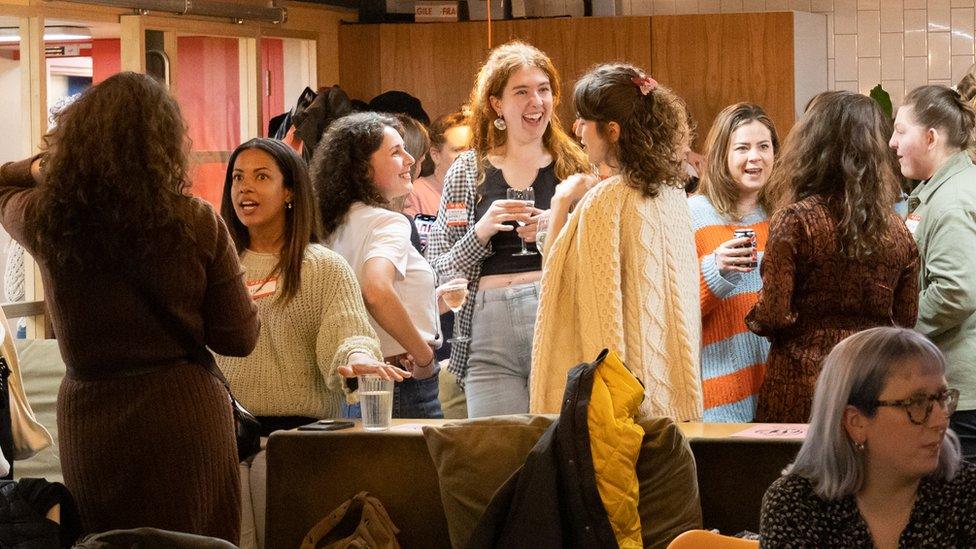
City Girl began life in Brighton
"Bank holidays are some of the greatest but some of the most isolating times as well," said Pippa.
"You are kind of caught in your silence."
She said City Girl Sunday meet-ups were always busy over a bank holiday as some of the network's members might not be able to afford to get home to see family, or they work for part of the weekend.
"If you're maybe keeping yourself busy on a Saturday when the Sunday comes and then rolls into a Monday, you can kind of end up just being on the sofa," she said.
Seven years on, Pippa said that snap decision to reach out to other women on social media turned everything around for her.
She said: "It has certainly changed my life."
Related topics
- Published6 May 2022
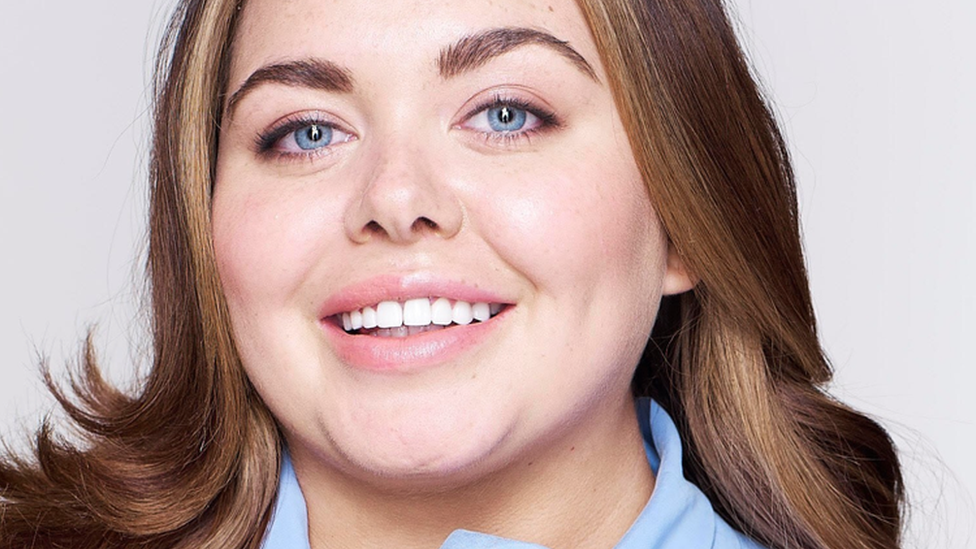
- Published28 July 2022
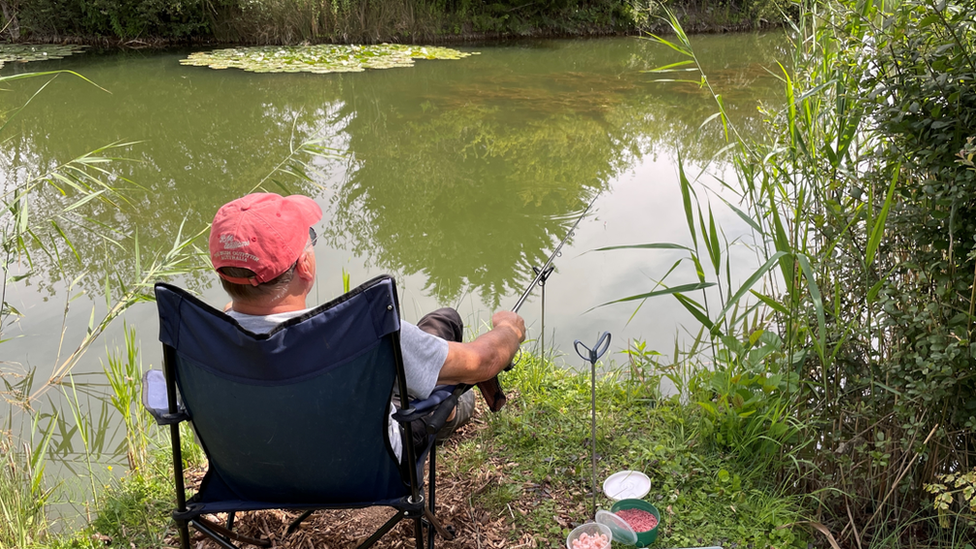
- Published2 May 2023

- Published11 March 2023
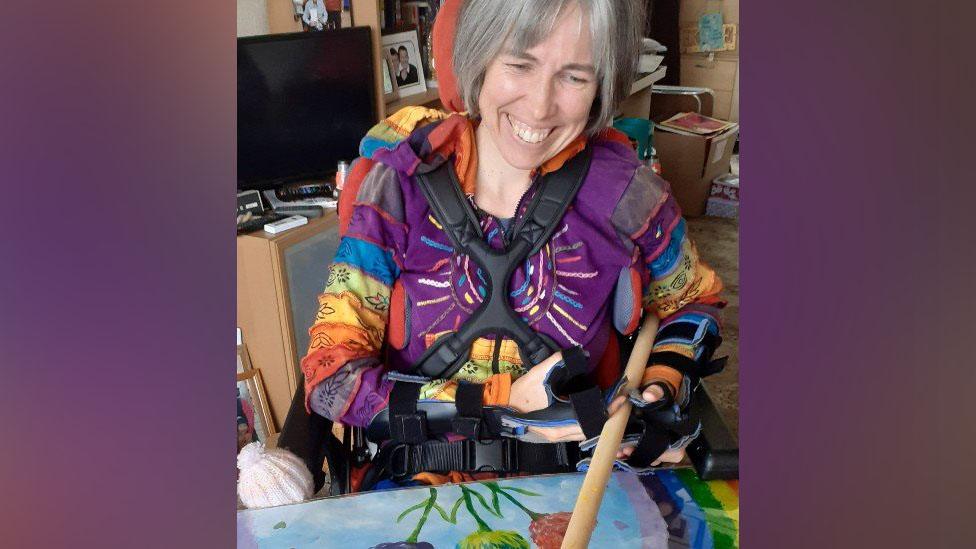
- Published22 March 2023
